We use audience measurement tools (such as Google Analytics 4 and Clarity), via Google Tag Manager, to understand how the website is used and to improve it. The data are used for statistical purposes only and are not used for targeted advertising.
Yesterday a school teacher, today a deminer for FSD
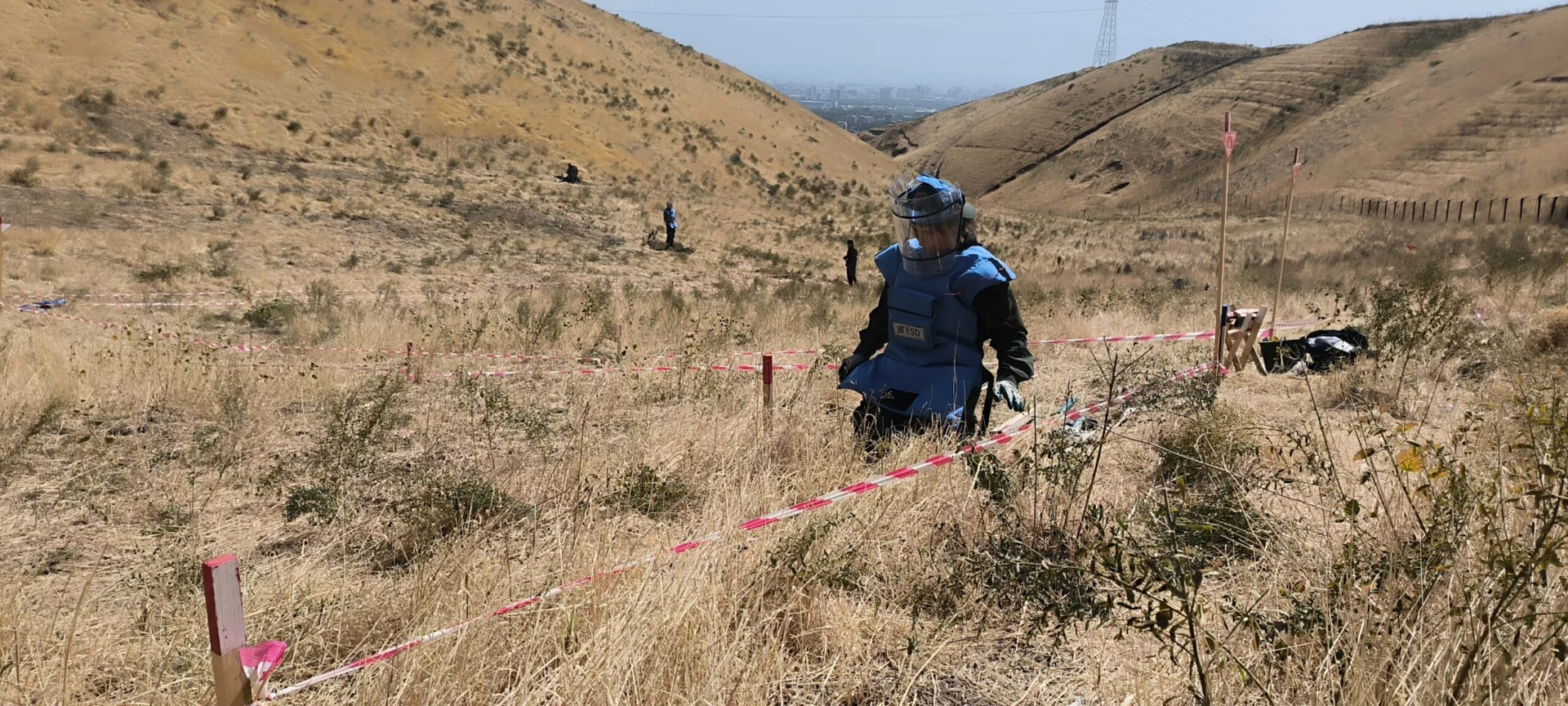
Iskandarova Zebonisso comes from the district of Rudaki, in Western Tajikistan. A few years ago, the 31-year-old woman was working in a nursery school. Today, she locates mines and explosive remnants of war in the south of the country, along the Afghan border. As a widow with three children, she is the sole provider for her family.
Iskandarova is a deminer in the team deployed last month by FSD to a remote and mountainous area of Tajikistan. Her colleagues include four men and three women. The latter, Majidova, Sharapova and Nabotova, are also mothers, and worked respectively as farmer, shop assistant and intensive care nurse. They have all completed FSD training in humanitarian demining, and are now helping to clear their country of dangerous remnants of war.
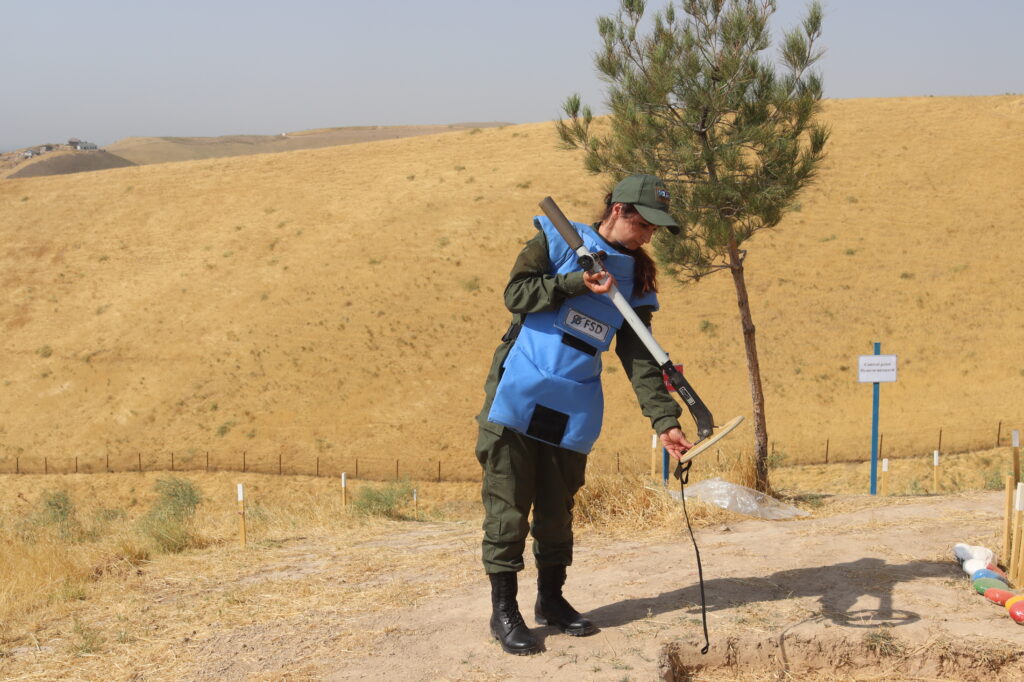
Iskandarova is a deminer in the team deployed last month by FSD to a remote and mountainous area of Tajikistan. Her colleagues include four men and three women. The latter, Majidova, Sharapova and Nabotova, are also mothers, and worked respectively as farmer, shop assistant and intensive care nurse. They have all completed FSD training in humanitarian demining, and are now helping to clear their country of dangerous remnants of war.
Empowering women is not only a moral imperative but also a strategic necessity on the path to fulfilling the Country’s commitment to the Antipersonal Landmine Ban Convention. Their strength, resilience and determination are the driving forces that will help us move towards a mine-free world, where every step forward is a step towards peace and security.
Tajikistan’s contamination by mines and explosive remnants of war is the result of the civil war that followed the country’s independence between 1992 and 1997. Russian military forces also heavily mined the border with Afghanistan to prevent passage between the two countries. These explosive devices, laid or dropped some thirty years ago, still pose a daily threat to the civilian population and hamper agriculture.
FSD’s involvement in Tajikistan dates back to 2003. In 15 years, our teams have cleared and returned to the population 11 km2 of land and destroyed 820 tonnes of weapons and ammunition. After five years focusing on weapons and ammunition destruction activities, our demining operations resumed last month.
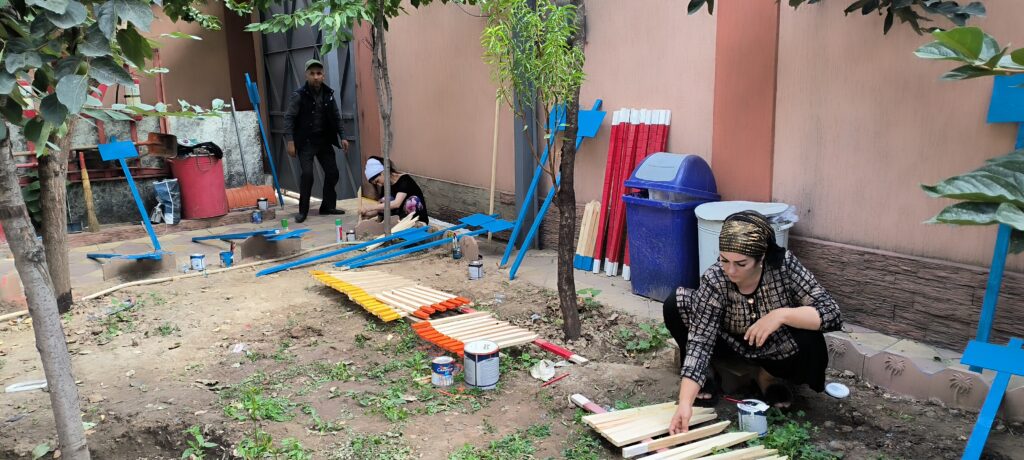
With “only” 12 km2 of contaminated land and several demining teams in action, including FSD’s team, the prospect of a mine-free future could finally become a reality for the people of Tajikistan.
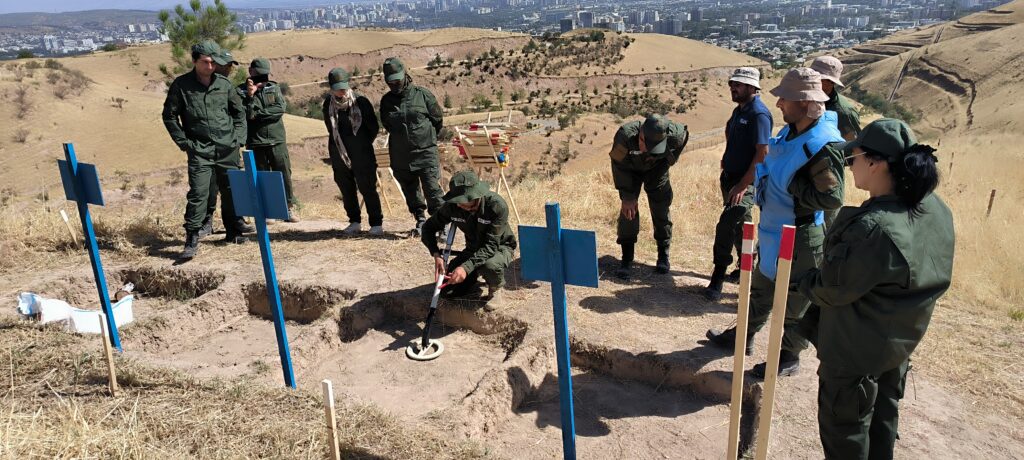
View all
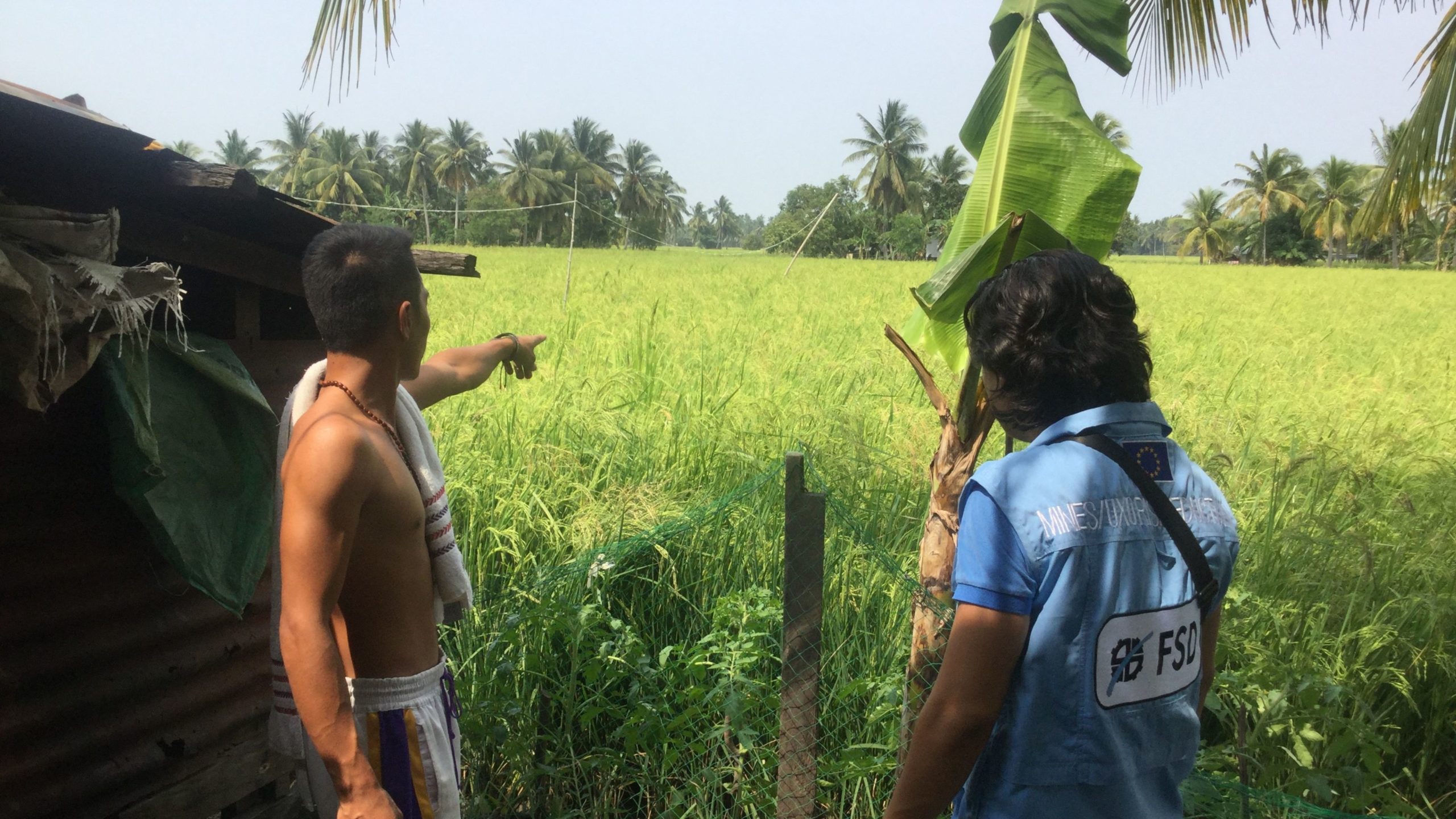

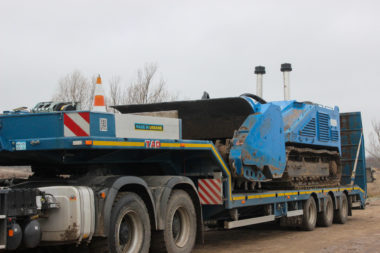

Mindanao: A New Operational Centre Enabling a Rapid Response to Explosive Risks
Until recently, many residents were reluctant to report the presence of these items, due to fear, mistrust, or a lack…
Humanitarian demining Non catégorisé Philippines

QR Codes to Save Lives
In Kharkiv province, Ukraine, residents live every day with the invisible yet very real presence of explosive remnants of war. FSD…
Prevention and risk education

FSD strengthens Ukraine’s mechanical demining capacity
FSD has launched a new project funded by the Swiss State Secretariat for Economic Affairs (SECO) to help the State…
Machines, drones and technology Humanitarian demining Non catégorisé
